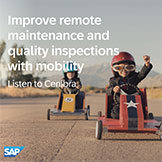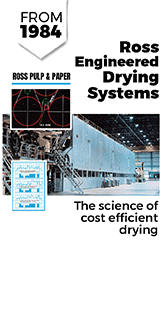Why title or start a column with a question? That seems to be my first instinct when I sit down to write my next piece. I think I do that because I'm in a pondering mood...which invites questions. Maybe it's because I don't feel I have answers to write about, so I default to the questions I seek. At this moment, what is rolling around in my head is if I would encourage my college freshman daughter to go into the paper manufacturing industry. After all, BOTH her parents did. The answer to that is a resounding yes. However, there might be some turmoil in the industry, i.e. shutdowns and bankruptcies in the years and decades to follow. Who knows? The same could be said about ANY industry. Despite those headwinds, the paper industry is a necessity in society for the foreseeable future. You can make a good life.
However, she did NOT choose to attend a traditional "paper" school due to breathe-taking scholarship offers from other schools. That's ironic considering the endowments that most paper schools carry. Yet, she is studying chemical engineering...so there's a chance (quoting Lloyd from Dumb and Dumber.) Could she pick up paper-related terms and engineering principles with a few co-op experiences? Of course. ChemEs and MEs from Purdue, Ohio State, MIT, etc. do it all the time. The founder of Paperitalo Publications graduated from the University of Cincinnati. So, it's really experience that teaches you the nuance and tribal knowledge unique to papermaking. Particularly if you already understand principles around flow, energy, charge, density, thermo transfer, statistics, unit conversion, etc., etc.
I found my own early work experiences while an undergraduate to be much more impactful than theoretical lectures. Not only that, but when I returned to lectures after a work experience, I found them to be more interesting because the lectures could explain what was happening when I observed situations in the field. I think co-operative education in technical fields is such a powerful combination to produce effective operators and managers. It's a hard sell though when trying to convince a young person to stick around college for 5 years instead of 4. Maybe a future column should analyze the economics of the two paths. Nonetheless, it's a no-brainer in my mind. It worked out well for me and nearly everyone I know who co-op'ed.
I'm thinking about all this not only because of my daughter's situation, or my own personal experience, but also because a few people I've met in my recent travels to mills. Impressive, confident, knowledgeable people in leadership roles who never got a college degree. They worked their way up through an organization from the ground floor. After hearing about how those kind of people did that, I begin to wonder if college is even necessary. I've seen some internet memes and articles along the same topic - but more broadly speaking to just about all kinds of careers. Most of those arguments are geared towards affordability and relevance. This still might be a new trend that emerges over the next few decades to fill some of the resource gaps we see in heavy industry. I applaud it - even though I firmly believe, in technical fields, university is the way to go. It accelerates career advancement. But that is only because of rules and requirements in the hiring process. The school of hard knocks, as they say, is also a rich and resourceful education too. I think it produces practical people who are creative in their approaches and see mistakes and failures as experimentation to learn.
Another great approach to organic personnel development from a company's perspective is tuition reimbursement. It's a real perk to be employed by an organization that invests in you. Sure, they also do it for selfish reasons too - to make their employees greater producers. It's about aligning incentives that both sides seek. It's paramount to recognize that by further credential-ing employees, they are worth more in the marketplace, so you have to keep employees whom you've invested paid accordingly and present growth opportunities. Businesses and operations can easily overlook this when employees are doing great work. That is, right up to the point the employee leaves for new opportunities. Oops.
After all this rambling and contemplation (that I did not write about), how am I going to wrap up? I guess I'm just going to default to what I told my daughter when she was in the throes of decision-making about her college path, "find your flow darling." Does that mean find your bliss? Seek happiness? Perhaps, but not necessarily. Does 6 sigma certification constitute high quality? Nope. It certifies documented processes and procedures that usually leads to high quality. I want her to be curious. I want her to find something meaningful to her. I want her to passionately pursue goals. I want her to be engaged in what she does. The worst thing for her to do is begrudgingly do work or feel used and/or stuck. I want her to feel like she is "good" at something and get paid accordingly.
I think just about anyone can do all that. And if you aren't, are you living your best life? Tick tock.
Steve Sena (stevesena@me.com) is a Cincinnati native. He obtained degrees in Paper Science & Engineering from Miami University in Oxford, OH and an MBA concentrating in Economics from Xavier University. He's worked for a broad array of leading producers, suppliers, and converters of pulp and paper grades.






















